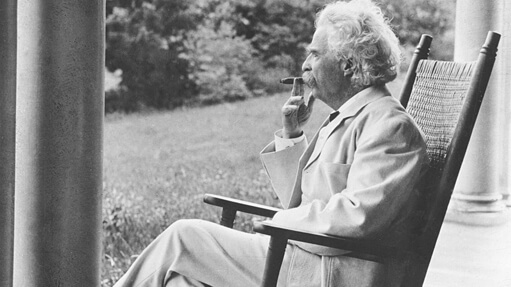Samuel Clemens, better known by his pen name Mark Twain, was an American writer, humorist, and anti-imperialist born on this day in 1835. He was lauded as the "greatest humorist [the United States] has produced", and William Faulkner called him "the father of American literature". After 1899, he was also a committed anti-imperialist and anti-racist.
Before 1899, however, he supported imperialism, calling the Spanish War "the worthiest" war the U.S. ever fought. In the New York Herald, he described his anti-imperialism epiphany like this:
"I wanted the American eagle to go screaming into the Pacific ... Why not spread its wings over the Philippines, I asked myself? ... I said to myself, Here are a people who have suffered for three centuries. We can make them as free as ourselves, give them a government and country of their own, put a miniature of the American Constitution afloat in the Pacific, start a brand new republic to take its place among the free nations of the world. It seemed to me a great task to which we had addressed ourselves."
"But I have thought some more, since then, and I have read carefully the treaty of Paris [which ended the Spanish-American War], and I have seen that we do not intend to free, but to subjugate the people of the Philippines. We have gone there to conquer, not to redeem."
From 1901 until his death in 1910, Twain was vice-president of the American Anti-Imperialist League, which believed that there is a fundamental contradiction between the ideas upon which the American republic was founded and designs for colonial expansion being advanced by the nation's contemporary political leaders.
